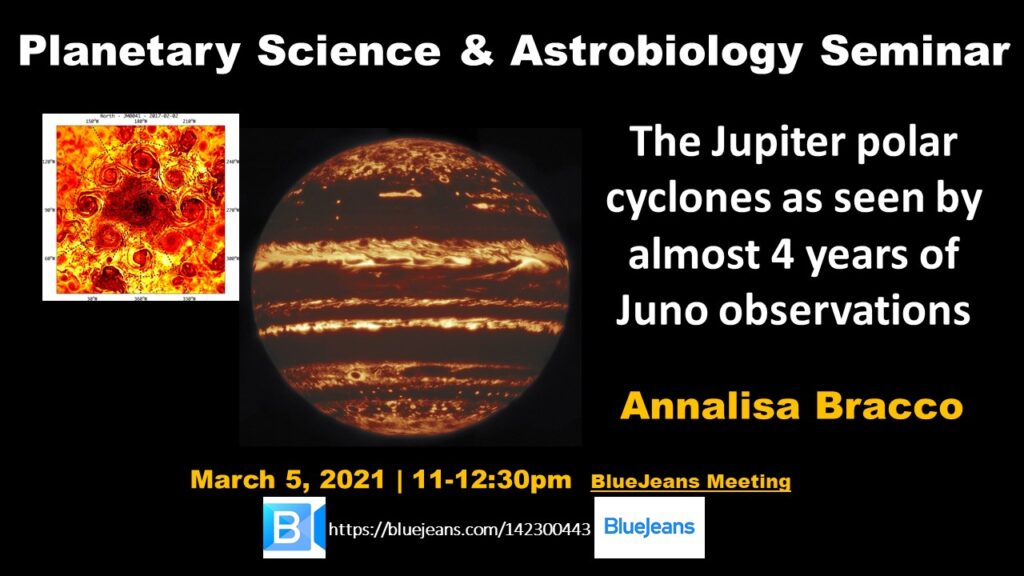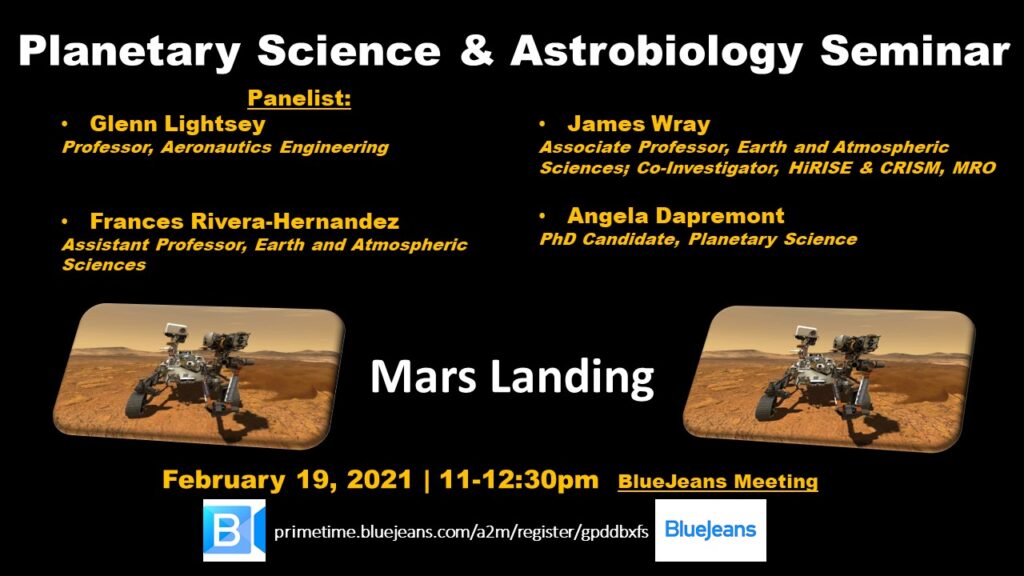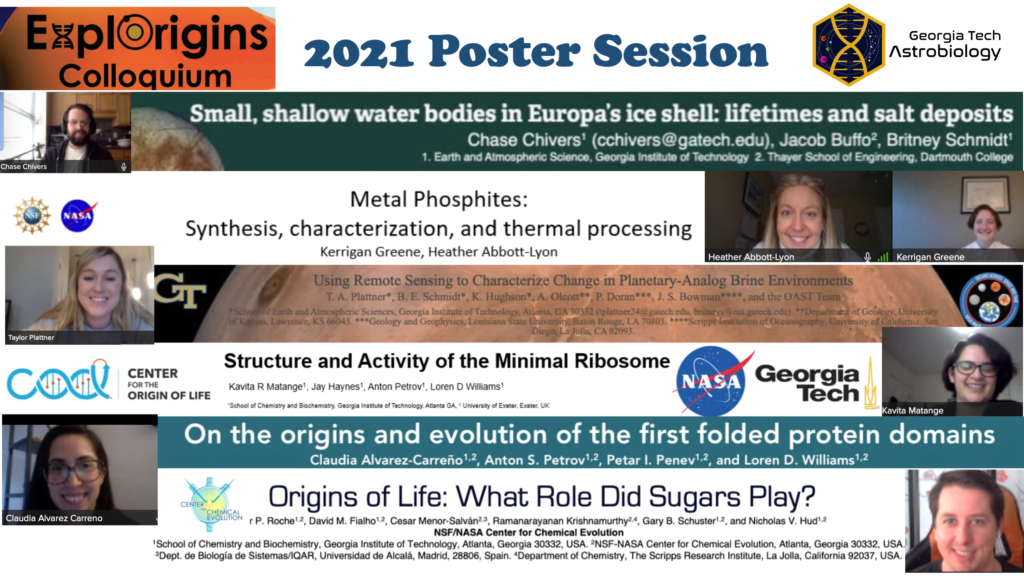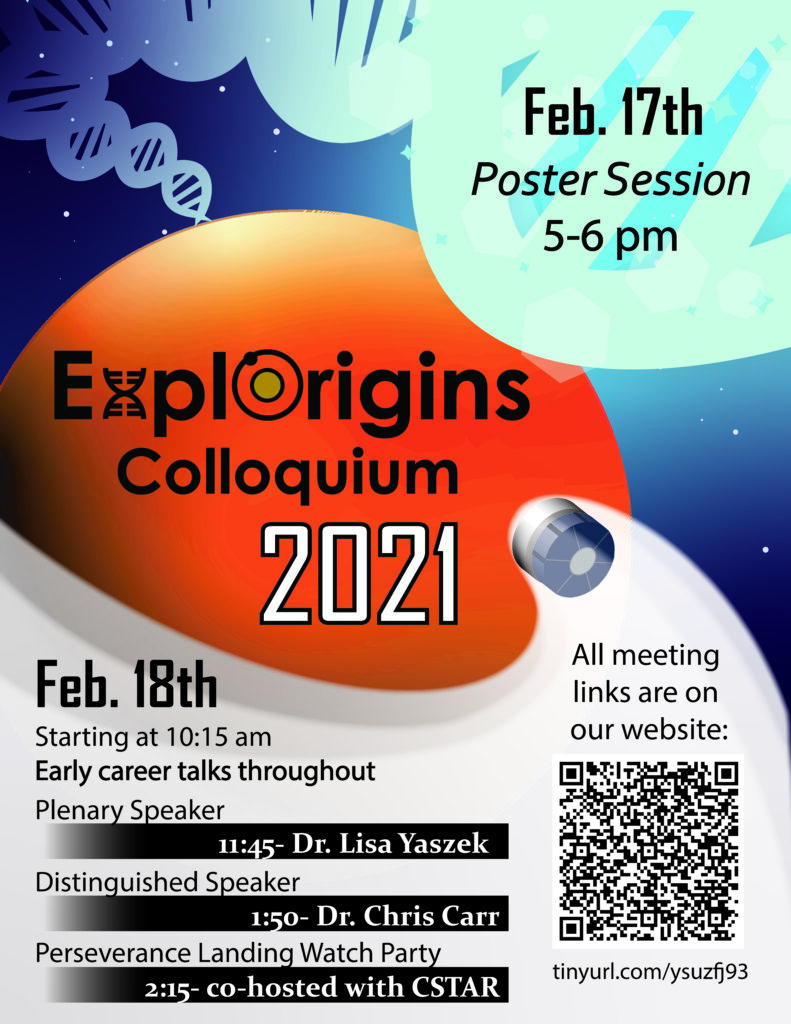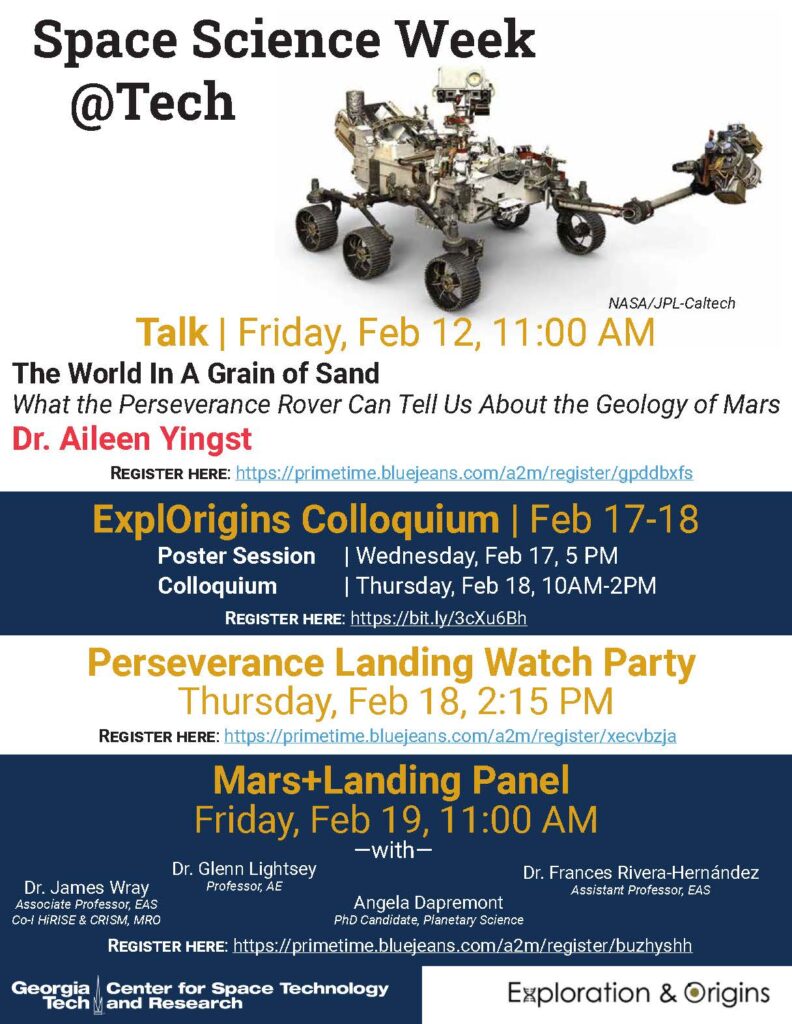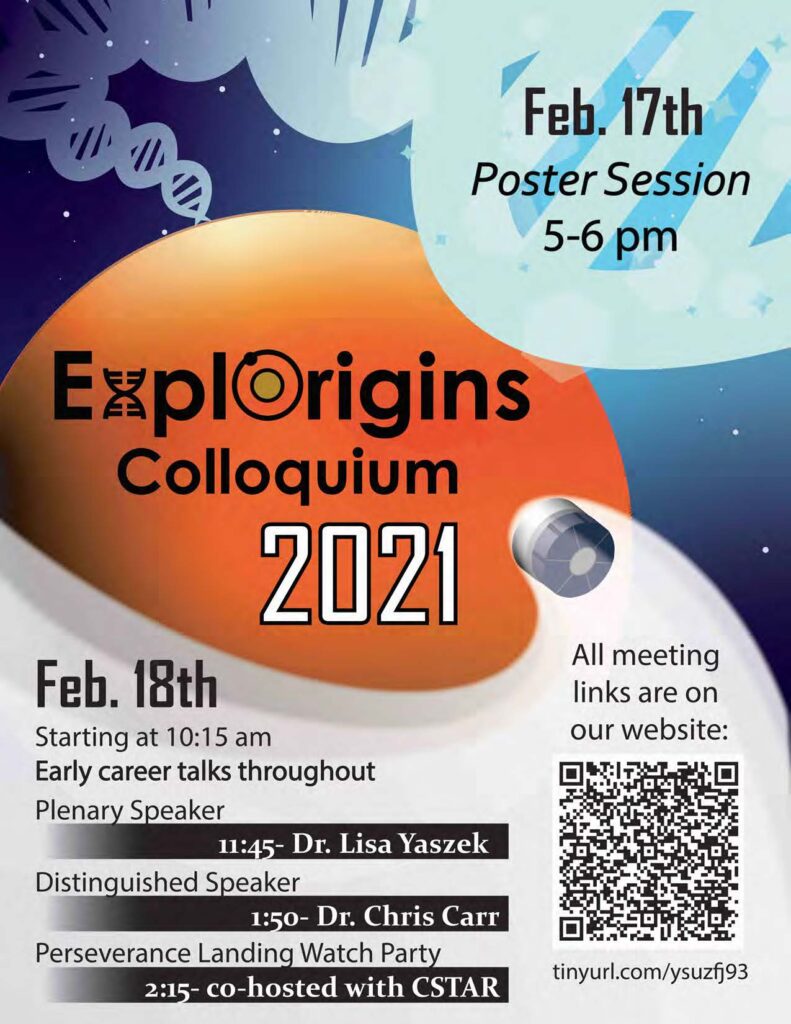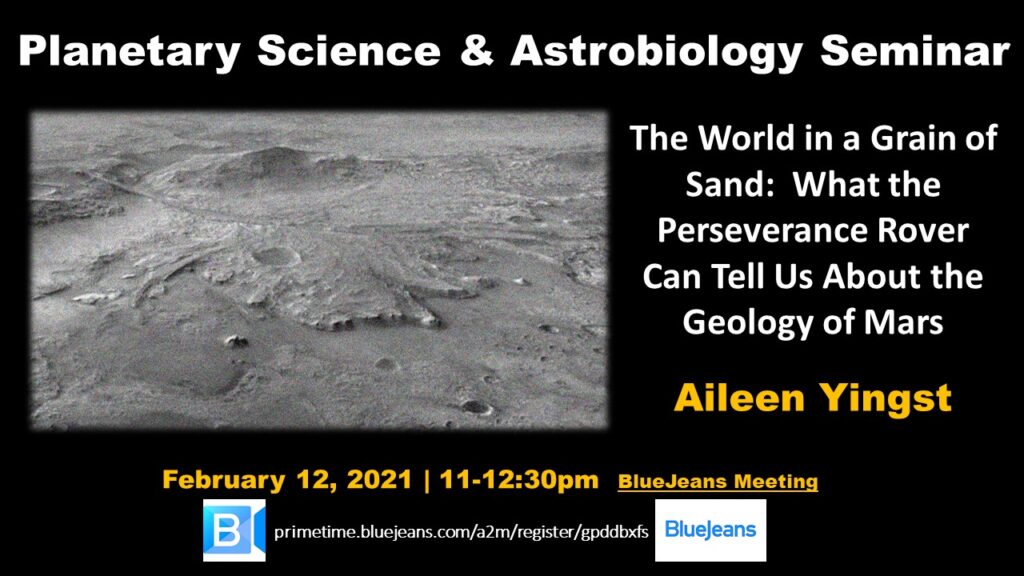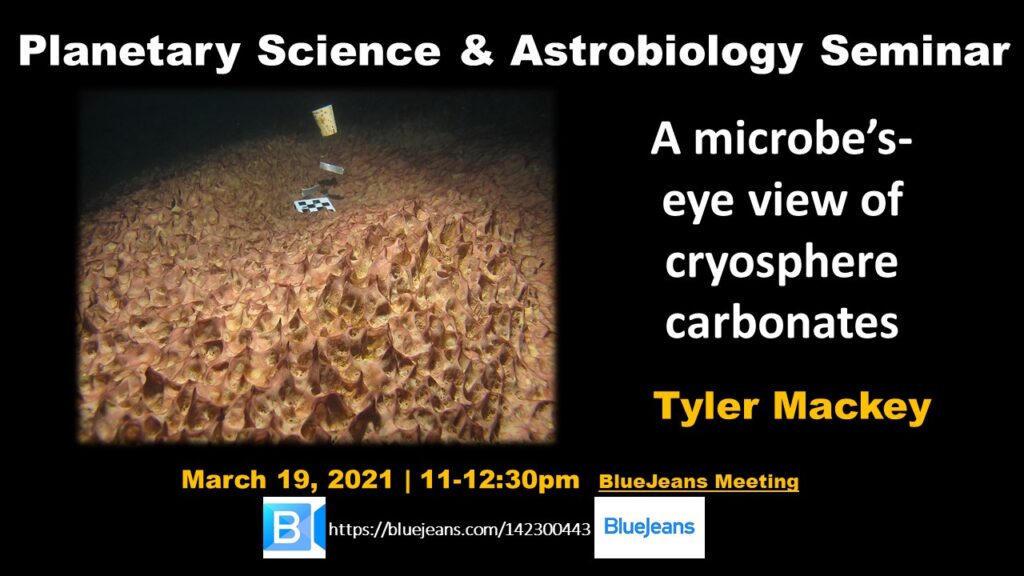
The history of life on Earth is dominated by microbial communities, and aspects of their evolving
relationship with surface environments can be preserved by carbonates. In this talk, I focus on lakes
Joyce and Fryxell of the McMurdo Dry Valleys, Antarctica, to assess attributes of cryosphere
environments that influence microbial carbonates: namely ice cover, cold temperatures and
seasonality. Microbial mats in both of these lakes contain abundant carbonates, but differ in redox
chemistry and the degree of apparent biological influence on carbonate precipitation. Though such
cryosphere carbonates do not contribute significantly to the sedimentary record, these rare examples from modern environments provide necessary models for reconstruction of long term paleolake climate records and inform paleoenvironmental interpretations of ancient cryospheres like Snowball Earth episodes.
Tyler Mackey,
Assistant Professor at the University of New Mexico in the Department of Earth and Planetary Sciences

